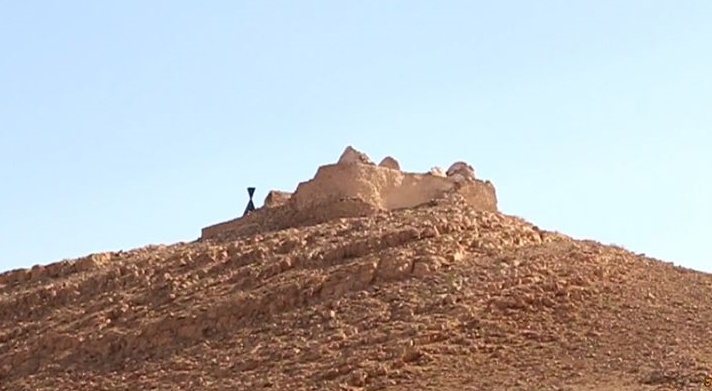
Maamoun Abdulkarim, the head of the government's Antiquities and Museums Department, told The Associated Press that the extremists destroyed the grave of Mohammad Bin Ali, a descendant of Imam Ali, cousin of Islam's Prophet Muhammad and a deeply revered Shiite saint. The grave was just north of Palmyra.
The second tomb is close to the city's famed Roman-era archaeological site and was the final resting place of a Sufi scholar, Nizar Abu Bahaa Eddine, who lived in Palmyra some 500 years ago.
The militants of the Islamic State group are Sunnis who follow a radical interpretation of Islam that views visiting tombs and religious shrines as tantamount to idol worshipping. They view Shiites as heretics and the followers of Islam's mystical Sufi orders as deviants.

Since the Islamic State group captured Palmyra last month, there have been fears that the extremists, who have destroyed famed archaeological sites in Iraq, would demolish Palmyra's sprawling Roman-era ruins, which were once one of the most popular tourist sites in the Middle East.
Earlier this week, Abdulkarim said he had received "unofficial news" from Palmyra that the militants intended to blow up the town's main historic site and that he had contacted tribal chiefs in the area to try to dissuade the militants. The Britain-based Syrian Observatory for Human Rights said it had received information that Islamic State militants have mined the site. The report could not be independently verified.
Palmyra's UNESCO world heritage site is famous for its 2,000-year-old Roman colonnades, other ruins and priceless artifacts. Before Syria's conflict began in 2011, tens of thousands of tourists visited the remote desert outpost, a cherished landmark referred to by Syrians as the "Bride of the Desert."
Syrian authorities say they moved hundreds of priceless artifacts to Damascus ahead of the IS takeover last month, but the fate of those ruins too large to move is now in the hands of the extremists. Islamic State militants have already looted and vandalized a museum in the Iraqi city of Mosul and have massively damaged the ancient cities of Hatra and Ninevah - both UNESCO world heritage sites.
Source: Associated Press [June 24, 2015]